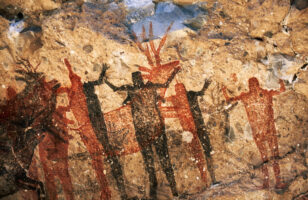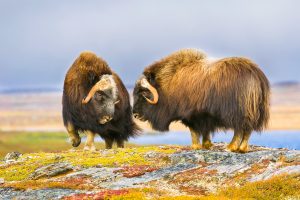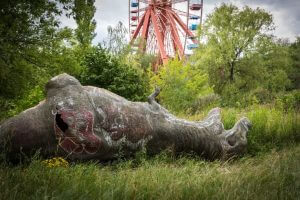Support Hidden Compass
Our articles are crafted by humans (not generative AI). Support Team Human with a contribution!
This story has been republished in the Hidden Compass Legacy Issue in celebration of reaching 100,000 readers.
It’s July 2020 and I should be heading north to Whistler, British Columbia. Instead I turn east toward North Cascades National Park because a pandemic has closed the border between Washington state and Canada, canceling my wedding plans. I’ve long retreated to the wilderness when times get tough. Thankfully my fiancé is game for an adventure.
Headed east on Highway 20, we encounter a detour, forcing us to take a back road. The turquoise, glacier milk of Diablo Lake gives way to the outer edges of Ross Lake.
“That’s where it all started for me,” I say.
Thirteen summers earlier I had first come here while approaching the precipice of another frontier. It was the end of my enlistment in the U.S. Navy, and the beginning of life on my own terms.
I was done making apologies.
~~
On leave after a six-month deployment across the Pacific Ocean, I made my way with a pair of friends to a mythic locale we’d only seen in our mind’s eye: through the writings of Jack Kerouac.
Streamers of froth trailed behind us as our water taxi marred the smooth face of the lake. A steady rumble of the boat’s engine was the only sound in the secluded backcountry of Ross Lake, past the noise of Highway 20, into the rugged wonderland of the North Cascades.
Kerouac’s words seemed to whisper with the engine’s hoarse voice: “There was nowhere to go but everywhere, just keep rolling under the stars.”
Raindrops fell as the boat pulled up to a seasonal dock at a campsite called Lightning Creek. We disembarked with our loads of gear as the boat operator gruffly stated, “I’ll be back to pick you up at noon in two days.” Without further ceremony he was gone, and with him the only other manmade sounds.
We set up camp and made small talk to stave off the silence.
I had camped before, as a kid with my family. But at the age of 22, this was my first excursion into the backcountry: at least 12 miles away from the nearest road, no cell service. No way to contact someone if something went wrong.
~~
More than half a century before my own pilgrimage, a not-yet-famous Jack Kerouac also followed a writer he admired into the woods. The year was 1955 and he and Gary Snyder met at the now legendary Six Gallery poetry reading in San Francisco. For several months they spent time together, even sharing a cabin in nearby Mill Valley.
An outdoorsman versed in Buddhist poetics, Snyder had found enlightenment as a fire lookout in the North Cascades and encouraged Kerouac to apply for a post. Kerouac, a city boy, was eager to experience the spiritualism of the backcountry but possessed no survival skills to rely on in the wild.
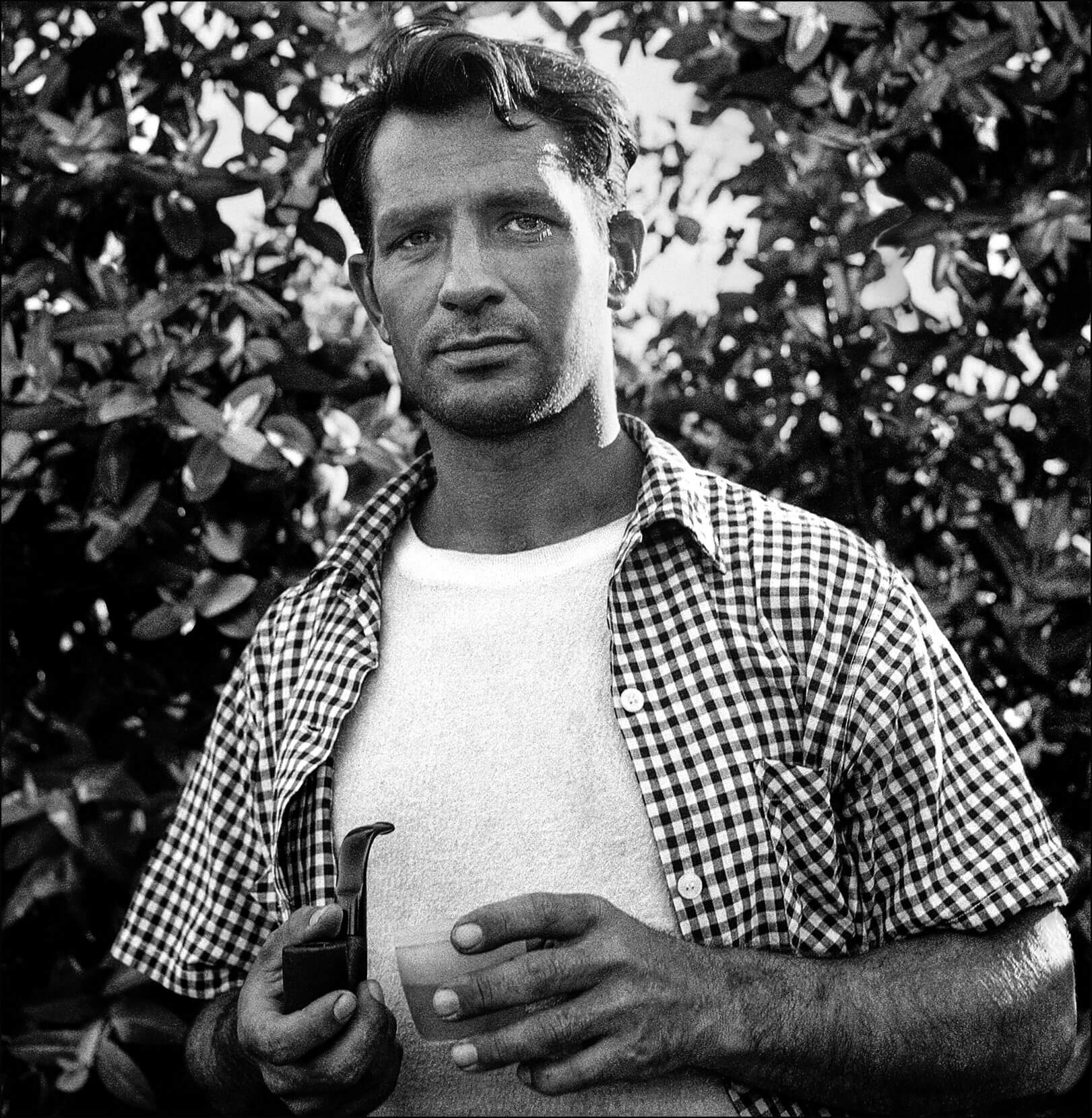
The 1950s took a thirtysomething Jack Kerouac from Desolation Peak, as a lonely fire lookout in 1956, to the peak of literary fame, with the 1957 publication of On the Road. Photo: USU Special Collections & Archives, Merrill-Cazier Library
The men set their sights on Matterhorn Peak in Yosemite National Park as training grounds. Though the trip happened in real life, most of the known details come from Kerouac’s recounting in 1958’s Dharma Bums, which blurred the lines between fictional characters and their real-life counterparts: On the trail, ebullient with enthusiasm, fictional Snyder stripped off his clothes. Kerouac’s character watched his muse’s bare butt frolic up the ridges, deeply envious of his lightheartedness. At basecamp that night the men reeled with the intellectual agility of their ideas.
The next day, the air thinned as they ascended the 12,279-foot peak, and Kerouac’s exuberance turned to dread. He was out of his element. Snyder coached him up the mountain: “The secret of this kind of climbing is like Zen. Don’t think. Just dance along.”
Nearing the craggy summit of Matterhorn, Kerouac lost his motivation and did not make it to the top. For the rest of the hike, he turned sullen and argumentative with Snyder, who had easily crested the mountaintop.
The encounter foreshadowed Kerouac’s tumultuous relationship with the wilderness — and his psyche. Both struggles came to a head for him the next summer as a lone fire lookout atop Desolation Peak.
~~
A few months before our camping adventure, in my last year of enlistment, we three sailors had voyaged across the Pacific Ocean aboard a Navy frigate.
We took turns standing watch on the uppermost deck of the ship, at twin .50-caliber machine guns, where we monitored the watery wilderness for any other maritime vessels. Jason, a libertarian from San Francisco, lent me his copy of Desolation Angels, which chronicles Kerouac’s summer on Desolation Peak. The book grasped hold of my imagination and soon I had read much of Kerouac’s body of work.
The ship’s deck became my own desolation lookout, a place for me to sift through the mire of my life and my struggles to accept my identity — an openly gay man during the “don’t ask, don’t tell” era who had recently come out to my religious parents, who believed I was damned to hell.
Through 63 lonely nights as the fire lookout on Desolation, Kerouac awoke to clamoring wind, and often to the imposing figure of Hozomeen Mountain looming through the windows. “At night at my desk in the shack I see the reflection of myself in the black window… Courage it takes to live and face all this iron impasse…”
Through his prose, I found a catharsis, as well as a vocabulary to describe the depths of my own plight as I stood guard over an empty sea. He was right when he wrote, “The sound of silence is all the instruction you’ll get.”
~~
At Lightning Creek, my friends and I awoke to puddles of water in our six-person tent. After a hearty breakfast of bacon cooked by campfire and black coffee laced with Irish whiskey, we made our soggy way to the trailhead and began our ascent. The hike was steep, up 4,400 feet of elevation over 4.8 miles of waterlogged pine forest. Sweat fell in droplets down the ravine of my spine.
Jason separated himself from the group. I worked hard to keep up as our third friend, Patrick, fell far behind. Soon I was alone in the forest, wondering if Kerouac knew what it felt like to be alone, and to be in the closet.
The ship’s deck became my own desolation lookout, a place for me to sift through the mire of my life and my struggles to accept my identity — an openly gay man during the “don’t ask, don’t tell” era who had recently come out to my religious parents, who believed I was damned to hell.
Fellow writer Gore Vidal says he did. In 1953, a night of drinking together in Manhattan’s Greenwich Village took a turn on a street corner, with Kerouac swinging his body around a light pole like a stripper. In Vidal’s memoir — published after Kerouac’s death — he claims the encounter turned amorous. In his 1958 novel The Subterraneans, Kerouac sets a vague scene, once again casting real people — Vidal and the woman Kerouac was seeing — as fictional characters: “There he is a well-known and perfectly obvious homosexual of the first water, my roaring brain — we go to his suite in some hotel — I wake up in the morning on the couch, filled with the first horrible recognition, ‘I didn’t go back to Mardou’s at all.’” Vidal’s account is much more sexually explicit.
I knew a few men in the Navy who had one-night stands with other men and then hated themselves for it — and turned to blatant homophobia in the interest of reinstating their heterosexuality. In Kerouac, I saw traces of the same story. Although he was married to three different women, I couldn’t help but see correlations between my experience with the closet and the possibility of his.
Despite his legendary freedom — and his involvement with the queer characters of the Beat Generation — Kerouac’s public life looked much like that of a suppressed 1950s straight male. Unlike his mentor Snyder, Kerouac did not find peace on the peak, and his affinity for the outdoors had dried up by the end of his lookout post. “Desolation Adventure finds me finding at the bottom of myself abysmal nothingness worse than no illusion even — my mind’s in rags —”
For all of Kerouac’s attempts to write his story, something more must have been hidden beneath it — something that drove him to drink himself down the river Styx.
~~
Still alone on the trail, out of the trees I entered cinematic fields of subalpine meadows along Starvation Ridge. The uncannily named Jack Mountain and Nohokomeen Glacier emerged to the south. A serpentine Ross Lake meandered southward far below, the swells on its surface like pewter-colored scales. The dew-laden wildflowers of Indian paintbrush and lupine hung heavy on their stems. Hills of green grasses, speckled rust and violet, swayed in the light morning winds.
I was sweating thick and working out some of my angst. Kerouac, it occurred to me, navigated an age not entirely unlike my own. In the unedited scroll of On The Road, published for the first time in August 2007, Kerouac describes the homosexual exploits between his best friend, Neal Cassady, and Beat poet Allen Ginsberg, including their real names instead of the fictionalized names of Dean Moriarty and Carlo Marx used in the 1957 publication. His publishers censored this homosexual content, and Kerouac self-censored subsequent drafts in order to get his book published. If he couldn’t even write honestly about his friends, how much harder would it have been to express his own truth?
For all of Jack Kerouac’s attempts to write his story, something more must have been hidden beneath it — something that drove him to drink himself down the river Styx.
I knew how it felt to be silenced: My childhood was controlled, to the point that I had almost no understanding of what it meant to be gay. The military, in turn, took up the charge of molding me into their version of who I should be.
I caught up with Jason, and we headed northward along a sparse ridgeline until, at last, the Buddhist-like hut of the fire lookout came into view. I stepped inside the humble structure and gazed out through the windows. The craggy, M-shaped Hozomeen peak loomed directly to the north, and a sea of mountain ranges spread out on all sides. A surreal moment transported me back to my lookout post aboard the Navy frigate. Two chronologies merged into one.
As I stood in Kerouac’s footprints, a new vision emerged on the horizon. I would climb peaks and rise above my inner demons. I would fight fire for a living instead of look for it as a spectator. I would find my own Dean Moriarty and love him openly.
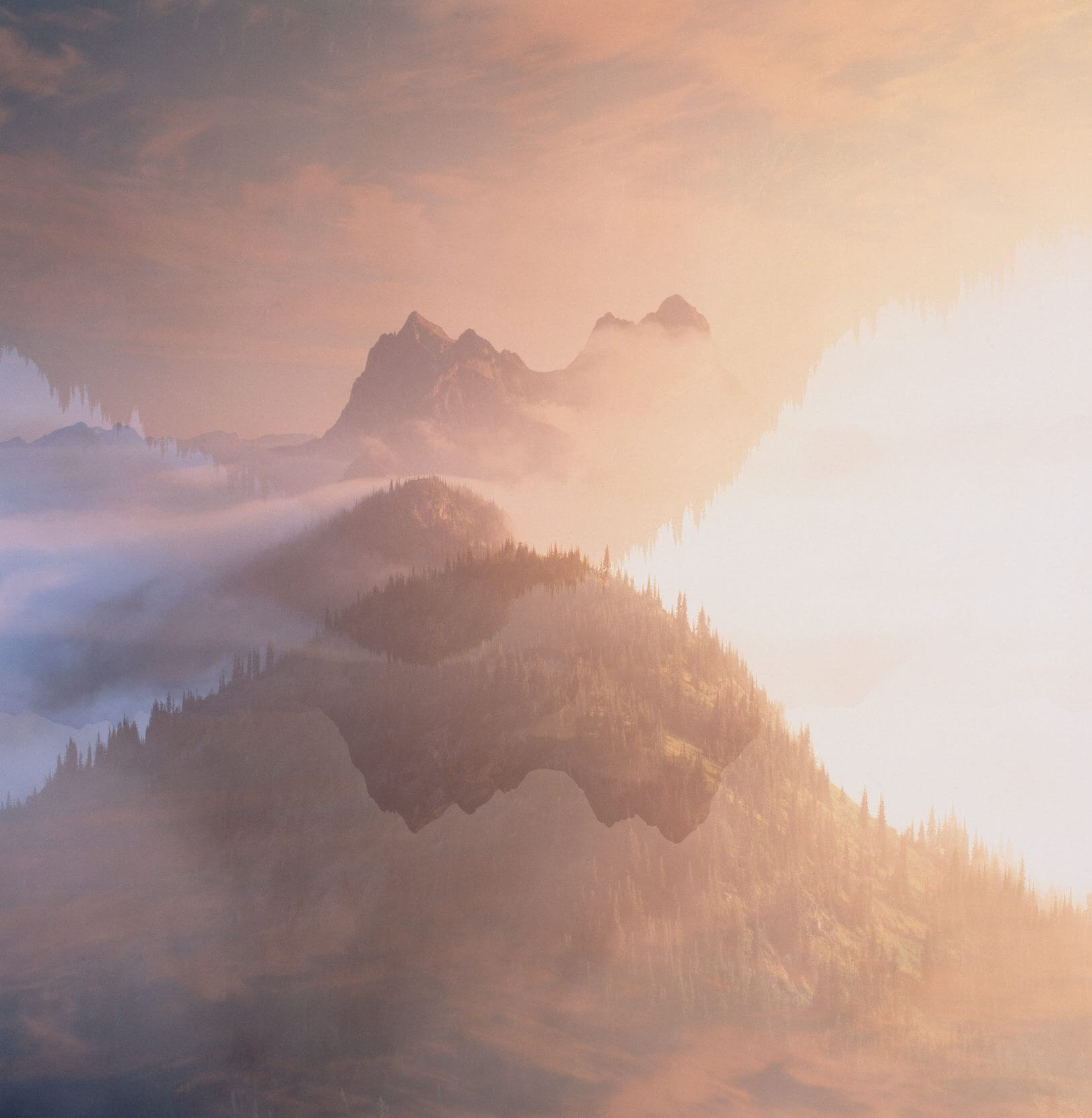
From Desolation Peak, Hozomeen Mountain looms as a steadfast companion — and, as depicted in this mirrored photo illustration, an enigma. In a single passage of Desolation Angels, Jack Kerouac calls the M-shaped peak both the “most beautiful mountain I ever seen” and “the Void.” Photo: David Pluth / Alamy
~~
More than a decade has passed since then. When my fiancé, Oliver, and I finally reach the verdant Methow Valley, we turn onto a fire service road that heaps clouds of dust behind us. Some miles later we make it to the trailhead and begin our ascent toward a lookout new to us both. The earth blushes with pink, red, and yellow wildflowers. We stop to take selfies and kiss on the trail.
“I think we should still stay on track with our plan to have kids, babe,” Oliver says. He is full of hope for the future.
“We have a lot of decisions to make about that,” I say. My pragmatism often extinguishes a bit of the fire in his eyes, so I add, “I can’t wait to become a father with you.”
His eyes warm with the flame of love.
We arrive at the Goat Peak lookout and are greeted by two moms and four children. They are kind and enthusiastic. A single-family unit? Kerouac taught me to always look for the story below the surface.
The layers of ridges roll toward Desolation Peak likes waves. So much has changed since my first trip to this region. I’m an experienced backcountry hiker and a professional firefighter. “Don’t ask, don’t tell” is gone. I’m legally allowed to marry my fiancé. We can start a family. I think of the example Kerouac gave me, an unlikely guide through the wilderness. His community, the Beats, led me to my own network of support.
I’ve learned so much about Kerouac since my Navy days, and the void between our lived experiences now seems so great. I could judge his life tinged with what critics have called his “heterosexual homoeroticism.” Or condemn his homophobia from the conflicted desires that may have tormented him. But I want to extend him a bit of empathy, and a bit of the freedom I’ve been privileged to enjoy in my time on this planet.
Two of the small girls climb out onto the rocky ledge and sing out, “It’s adventure time. Time to explore!”
Kerouac’s words come to mind, once more: “So shut up, live, travel, adventure, bless and dont be sorry.” I look out to a wilderness that has become so integral to my life — a place I long to share with my own children one day.
I add another word to his mantra. Love, and don’t be sorry.
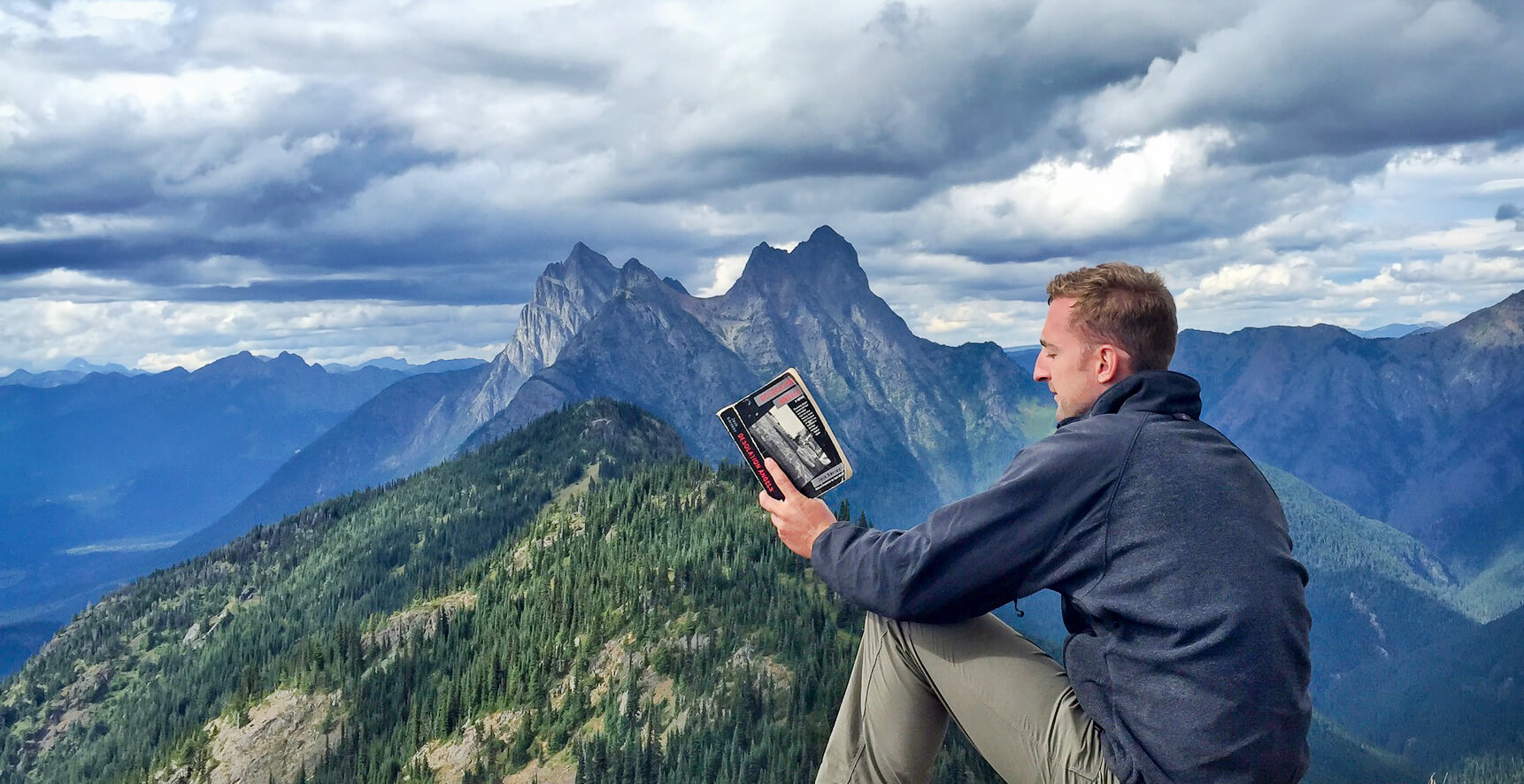
The writings of Jack Kerouac so moved author Lance Garland (pictured here), he hiked up Desolation Peak — and beyond. Photo: Courtesy Lance Garland
###
My recent work is focused on the intersection of identity and nature. I seek to tell stories that have been obscured by history, that reveal truths about our shared experiences, and help to build a more inclusive society.
Lance Garland
Lance Garland is a 2024 Pathfinder Prize winner and expedition leader for “Beyond the False Summit: A Matterhorn Expedition to Unearth the Queer Pioneers of Alpinism.” In the moments between fighting fires, climbing mountains, and sailing seas, he writes.

